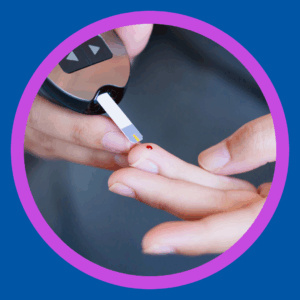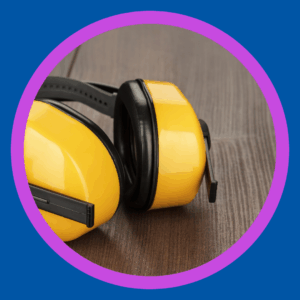8 Diseases That Cause Hearing Loss
Hearing loss can be caused by more than just age or loud noise. Many people are surprised to learn that certain health conditions can damage the ears and auditory nerves. These are known as diseases that cause hearing loss, and they affect millions each year.
If you’ve experienced dizziness, muffled sounds, or ringing in your ears, the cause could be medical. From chronic infections to autoimmune diseases, understanding these conditions is essential for protecting your hearing.
Let’s explore eight of the most common diseases that affect hearing, how they work, and what you can do.
Understand other causes of hearing impairment.
1. Otosclerosis: When Bone Growth Blocks Sound
Otosclerosis is a genetic disease that affects the bones in your middle ear. It mostly targets the stapes bone, which must move freely to conduct sound.
How Otosclerosis Causes Hearing Loss
This condition leads to abnormal bone growth. The stapes becomes stuck, preventing vibrations from passing into the inner ear. This creates a conductive hearing loss, where sound is blocked before it reaches the auditory nerve.
Symptoms to Watch For
- Gradual hearing loss, especially in one ear
- Tinnitus (ringing or roaring)
- Dizziness or balance issues
- Better hearing in noisy environments (paradoxically)
Who’s at Risk?
Otosclerosis is hereditary and more common in women. Pregnancy may trigger or worsen symptoms due to hormonal changes.
Treatment Options
Many people manage otosclerosis with hearing aids. In some cases, surgery called a stapedectomy replaces the stuck bone with a prosthetic to restore movement.
2. Ménière’s Disease: A Fluid Imbalance in the Inner Ear
Ménière’s disease is a chronic disorder that affects your inner ear’s fluid regulation. It typically shows up in adults between 30 and 50 years old.
Why Ménière’s Causes Hearing Loss
Excess fluid pressure damages the delicate structures in the cochlea. Over time, this causes sensorineural hearing loss, meaning the damage is permanent.
Key Symptoms
- Sudden attacks of vertigo
- Tinnitus in one ear
- Ear fullness or pressure
- Fluctuating hearing that becomes permanent
What Triggers It?
No one knows the exact cause. Genetics, autoimmune responses, or circulation problems may be involved.
Managing Ménière’s
Hearing aids help when hearing becomes more stable. Stanford Hearing may also recommend:
- Low-salt diets
- Diuretics
- Vestibular therapy for balance
3. Acoustic Neuroma: A Tumor That Affects Hearing and Balance
An acoustic neuroma is a non-cancerous tumor on the vestibular nerve. This nerve connects the inner ear to the brain.
How It Leads to Hearing Loss
The tumor presses on the cochlear nerve, disrupting hearing and balance signals. This typically causes unilateral hearing loss (in one ear).
Symptoms You Shouldn’t Ignore
- Hearing loss in one ear
- Persistent ringing (tinnitus)
- Balance issues or unsteadiness
- Feeling of fullness in one ear
Who Is at Risk?
Acoustic neuromas are rare and may be linked to genetic conditions like neurofibromatosis type 2.
Treatment Choices
Depending on the size and location of the tumor, treatment may include:
- Monitoring with MRI
- Surgery
- Radiation therapy
Even after removal, some hearing loss may remain. Hearing aids or cochlear implants may help.
4. Autoimmune Inner Ear Disease (AIED): When the Body Attacks Itself
Autoimmune inner ear disease is a rare condition where your immune system mistakenly targets inner ear cells.
What Happens in AIED
Inflammation damages the cochlea and hearing nerve. This causes rapid, often bilateral hearing loss.
Symptoms That Signal Trouble
- Sudden or progressive hearing loss in both ears
- Ear fullness
- Dizziness
- Tinnitus
Speed Matters
AIED can get worse quickly. You should see a hearing care provider as soon as symptoms appear.
Common Treatments
- Corticosteroids
- Immunosuppressants
- Hearing aids or cochlear implants
Managing the underlying autoimmune disease is also critical.

5. Diabetes: A Silent Threat to Your Hearing
Diabetes doesn’t just affect your blood sugar. It also damages blood vessels and nerves—including those in your inner ear.
Hearing Loss Linked to Diabetes
Studies show that people with diabetes are twice as likely to have hearing loss. High blood sugar levels damage the small blood vessels in the cochlea, leading to sensorineural loss.
Signs You May Be Affected
- Gradual decline in hearing
- Needing to ask others to repeat themselves
- Difficulty hearing in background noise
Preventing Damage
Controlling your blood sugar is key. Regular hearing tests should be part of diabetes care.
If you suspect hearing loss, Stanford Hearing offers hearing tests tailored for people with diabetes.
Explore how healthy hearing helps with healthy aging.
6. Measles and Mumps: Childhood Infections With Lifelong Impact
These two viral infections can cause long-term complications, including hearing loss.
Measles
Measles may cause brain inflammation and nerve damage. Even one bout in childhood can lead to permanent damage.
Mumps
Mumps affects the salivary glands but may also damage the cochlea. This leads to sudden hearing loss, usually in one ear.
Why These Viruses Matter
Before vaccines were common, these infections were a leading cause of childhood deafness. Today, they still occur in unvaccinated individuals.
Prevention and Treatment
Vaccination is the best defense. If hearing loss occurs, a prompt hearing test is essential.
The researchers behind this Communications Medicine study identified both measles and mumps among dozens of viruses that can cause hearing damage. They urge early testing and vaccination.
7. Cytomegalovirus (CMV): A Leading Cause of Infant Hearing Loss
CMV is a common virus that often shows no symptoms. But if passed from mother to baby during pregnancy, it may cause congenital hearing loss.
How CMV Harms Hearing
CMV can damage the cochlea and auditory nerve before birth. Hearing loss may be present at birth or show up later in childhood.
Warning Signs
- Delayed speech
- Inconsistent response to sound
- Learning challenges
Diagnosis and Care
Infants with congenital CMV need early hearing evaluations. Hearing aids or cochlear implants can help with communication and development.
How Stanford Hearing Diagnoses and Treats Disease-Related Hearing Loss
Hearing loss linked to disease is different from typical age-related hearing loss. It’s often more complex, sudden, or uneven. At Stanford Hearing, we understand the wide range of diseases that cause hearing loss and how to address them.

Comprehensive Evaluations
We start with a full diagnostic hearing exam. This may include:
- Pure-tone and speech audiometry
- Tympanometry to check middle ear function
- Otoacoustic emissions (OAE) to measure cochlear health
- Word recognition tests
- Case history and medical referrals if needed
We look at your total health picture—not just your ears.
Medical Collaboration
If we suspect an underlying condition like AIED, acoustic neuroma, or otosclerosis, we work with your primary care physician, ENT, or neurologist to coordinate care.
We also refer for MRI or CT scans if tumors or inner ear disease are suspected.
Custom Treatment Plans
Depending on your diagnosis, we may recommend:
- Medical referrals or imaging
- Real ear measurement to verify hearing aid accuracy
- Custom hearing aid fittings
- Bluetooth streaming and tinnitus therapy
- Ongoing monitoring
We also help identify and avoid ototoxic medications if they’re affecting your hearing.
Wondering, “Why does Viagra cause hearing loss?”
Protecting Your Hearing Long-Term
Even if you already have disease-related hearing loss, we help you preserve the hearing you still have. Our strategies include:
- Hearing protection education for loud environments
- Earwax management and hygiene tips
- Guidance on vaccinations and infection prevention
- Helping patients manage diabetes and cardiovascular health
- Monitoring for progression with regular testing
Discover how fireworks may cause hearing damage.
Be Proactive With Your Hearing Health
Many conditions can impact your hearing—some suddenly, others gradually. Knowing the signs and acting quickly gives you the best chance of protecting your hearing.
If you or a loved one has a condition like diabetes, an autoimmune disease, or has had frequent infections, schedule a hearing exam today.
Stanford Hearing offers expert care, personalized treatment, and the latest hearing aid technology for people with hearing loss due to disease. Let us help you hear clearly again.
Contact Stanford Hearing today to schedule a consultation

